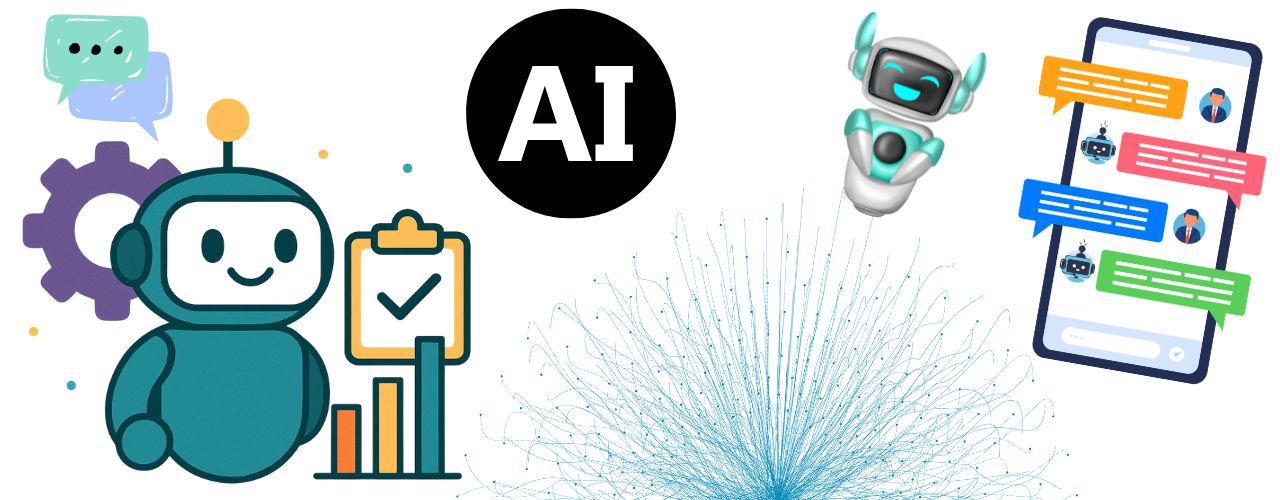
Choosing the Right AI Tool for the Job
AI tools are everywhere. Every week there’s something new promising to save time, create content, or streamline your business. It’s exciting, but it can also feel overwhelming. The truth is, not all AI tools are created equal. Some are designed to do a little bit of everything, while others are built to master one specific task.
Let’s break it down so you can decide what works best for you.

Stop Guessing What Belongs on Your Homepage
Let’s be honest. Most people treat their homepage like a junk drawer. Everything ends up there, but nothing’s easy to find.
The truth is, your homepage isn’t just another page on your website. It’s the first impression that decides whether someone sticks around or moves on. In just a few seconds, visitors decide if they understand what you do, who you help, and whether they trust you.

From SEO to AI Searchability: Why Your Foundation Matters More Than Ever
Remember when everyone was obsessed with getting on the first page of Google?
We were tweaking keywords, chasing backlinks, and trying to please the algorithm.
Well, AI just changed the rules.
Now, instead of typing something into Google, people are asking tools like ChatGPT, Perplexity, or Gemini for answers. And those tools don’t just list websites. They summarize the best answers, pulling from sources they trust.
That means the new question isn’t “How do I rank on Google?”
It’s “How do I get AI to trust and reference my brand?”

Micro-Step #21: What If You’re Missing the One Thing Your Audience Actually Wants?
I used to think I was doing everything right.
My line dance classes were welcoming, fun, and packed with people from all levels. But something kept nagging at me. Some beginners looked uncomfortable. They were smiling, sure, but I could tell they were overwhelmed trying to keep up.
At first, I brushed it off. “They’ll catch on,” I told myself.
But one night, instead of assuming, I asked a few regulars a simple question:

Micro-Step #20: Before You Double Down, Ask This First
Last week, I had a moment with a client that really stuck with me.
She was frustrated. Her marketing wasn’t landing, her audience wasn’t growing, and the results just weren’t there. But when I suggested trying something new, something that could actually work better, she resisted.
She said, “I just need to stick with what I’m doing and try harder.”
I get it. We’ve all been there.
It’s easier to keep investing in what’s familiar, even if it’s not working. But sometimes, what you really need isn’t more effort. It’s a fresh perspective.
That moment inspired this week’s micro-step.

Why Social Media Isn’t Enough (and What to Do Instead)
Simple ways to use social media to grow your website traffic and your email list.
Let’s get real. Social media is great for getting attention, but it’s not where you close the deal.
If you’re running a service-based business, especially as a woman juggling a million things, you need more than just likes and comments. You need connections that lead to clients. And that’s where your email list and website come in.

Micro-Step #11, Pt. 5: Align Your Brand With What Your Audience Cares About
Understanding what your audience values is not just helpful. It is one of the quickest ways to create messaging that feels like it was made just for them.
So far in this series, we’ve looked at who your audience is, what they care about, what they’re struggling with, and where they spend their time online.
Now we’re getting into the heart of it: what truly matters to them as people, not just customers.

Micro-Step #11, Pt. 3: This Is What Turns Browsers into Buyers
If you’ve ever had someone read your content and respond with, “This is exactly what I needed,” there’s a good chance it’s because you touched on a pain point.
When you understand what your audience is struggling with, everything changes. You stop guessing and start connecting in a way that really sticks.

Micro-Step #11, Pt. 2: Speak to Their Interests, Not Just Their Demographics
If you’ve already worked through Pt. 1, you’ve taken the first step toward defining who your audience is. Now, it’s time to go a little deeper—into what they actually care about.
Getting clear on their interests isn’t just a nice-to-know. It’s how you start building real connections that lead to real results.
